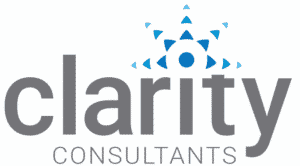When it comes to training strategies, adaptive learning and personalized learning have plenty in common. However, there are also a few key differences.
By learning about how the two methodologies stand apart, it’s easier to determine which approach is ultimately the best fit. Here’s what you need to know about adaptive learning vs. personalized learning.

What Adaptive Learning and Personalized Learning Have in Common
Ultimately, both adaptive learning and personalized learning aim to customize the learning experience based on the participant’s needs. They may eliminate courses from a larger training program based on a learner’s existing knowledge or what’s needed for their specific work position, job category, or function within an organization. By catering to the individual learner’s needs, training is increasingly efficient. There aren’t any redundancies within the broader experience, and all coursework is relevant to the learner’s situation. Additionally, both adaptive learning and personalized learning enhance engagement, ensuring learners don’t have to spend time on coursework that covers information they already know.How Adaptive Learning and Personalized Learning Stand Apart
While adaptive learning and personalized learning both focus on customization, how the systems approach it differ. With personalized learning, training plans are still somewhat rigid. While considers the learner’s existing knowledge while factoring in informational relevancy, once the program is set, it isn’t particularly adjustable. Adaptive learning, on the other hand, remains agile. Through the use of technology to monitor engagement and performance, looking for patterns that it can use to further hone the experience to the learner’s needs. As it identifies an improvement opportunity, it changes the training plan accordingly, shifting the nature of the content it provides to enhance overall learning.Adaptive Learning vs. Personalized Learning: Which Is Best?
While both adaptive learning and personalized learning offer customization, adaptive learning takes it to a new level. The learning path shifts based on a continuous assessment of new data relating to competency and engagement. Additionally, adaptive learning more accurately captures where a learner stands when it comes to understanding. While personalized learning plans rely heavily on self-declarations of competence, adaptive learning measures the degree of comprehension. If a learner over or underestimates their capabilities or knowledge, it can adjust dynamically. Ultimately, adaptive learning is far more agile than personalized learning. Plus, since it can measure competence along the way, it can ensure stronger overall results.Do You Want to Bring Adaptive Learning into Your Workplace?
Adaptive learning provides numerous benefits, leading to higher degrees of understanding coupled with strong engagement and training efficiency. If you’re ready to bring the strategy into your workplace, having experienced learning and development (L&D) professionals by your side is essential. At Clarity, we have nearly 30 years of experience in L&D, giving us the knowledge and expertise to introduce new training approaches in any workplace. Plus, if you’re trying to expand your internal L&D team, Clarity can be your candidate search ally, connecting you with top talent right when you need them. If you want to partner with leading L&D professionals, Clarity Consultants is here. Contact us today.
